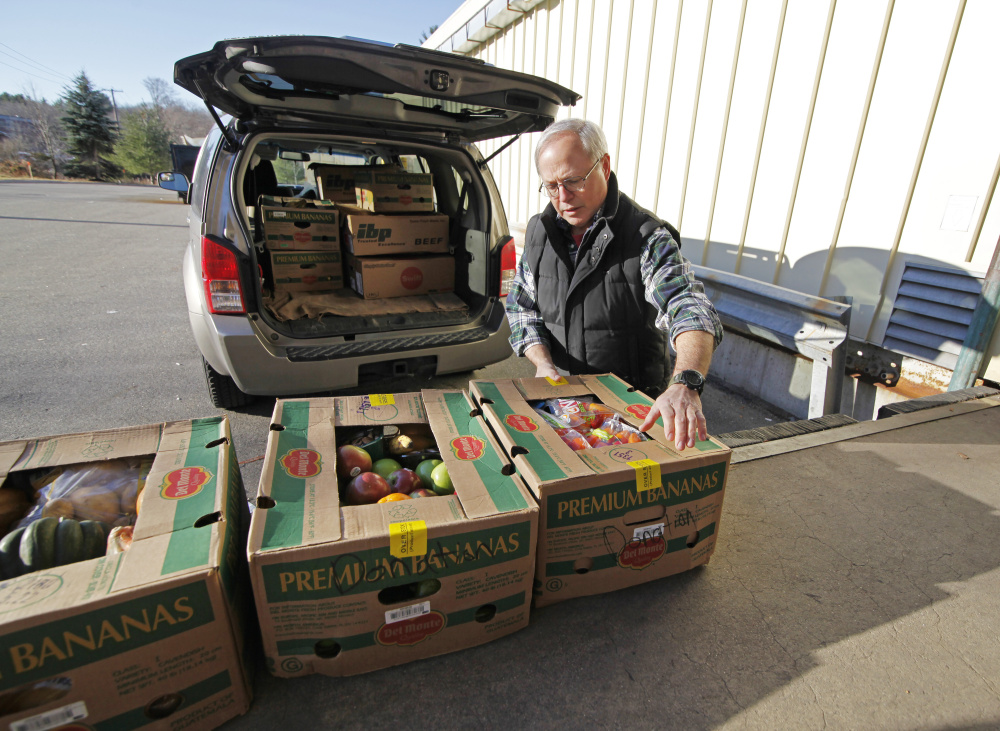AUBURN — On Thursday, families around Maine will gather to give thanks for all they have. While some will be giving thanks for the abundance that life has given them, many of our neighbors will be giving thanks for their local food pantry and for the food they receive there. One in seven Maine households relies on a local hunger relief charity for food each month.
Good Shepherd Food Bank partners with more than 400 local organizations across Maine to distribute nutritious food to Maine families, children and seniors in need. The simple truth is that there are many people throughout our state who would go without food this holiday season were it not for the work of the food bank and our statewide network of food pantries and meal sites. We are thankful that we can offer this service, and we are grateful to the many generous donors who make our work possible.
Speaking of generosity, at this time of year, hunger relief organizations like Good Shepherd Food Bank receive many offers of help. People are eager to volunteer their time, contribute food and donate money. And we are often asked the same questions:
• “Is this your busiest time of the year?” No.
• “Do you run special programs during the holidays?” No.
• “I called my local food pantry and the volunteer shifts were filled. Do they really need my help?” A resounding yes.
The problem is that the food pantry needs your help just as much in February and in July as it does on Thanksgiving. Good Shepherd Food Bank doesn’t distribute special holiday food, but our network of local food pantries and meal sites will provide more than 385,000 meals the week of Thanksgiving – just like we will the week before and the week after.
The generosity displayed during the holiday season is a wonderful gift; it’s something to be appreciated and encouraged, especially when we see young people giving back to their communities. But it is important that we remember that hunger is a problem 365 days a year.
Hunger isn’t a holiday. It is a stark reality for more than 15 percent of Mainers, including one in four of our children. So we need your help, but not just because it’s Thanksgiving.
We need your help because Maine has one of the highest rates of hunger in the country. We need your help because too many of our children are not reaching their full potential because they are going to school on empty stomachs. Being hungry is more than a physical state of discomfort. It means seniors are forced to choose between eating dinner or taking their medication. It means families are living with the daily, toxic stress of not knowing how they are going to put a meal on the table tomorrow.
Good Shepherd Food Bank and our partners across Maine are making progress in ending hunger in our state. We’re distributing more food each year, improving the nutritional quality of that food, and reaching families in new locations, including schools and health centers. We’re purchasing and distributing more local foods from Maine farms each year.
We don’t have a shortage of food in our state; we do have shortages when it comes to capacity and financial resources. If we are going to reach our goal of ending hunger in Maine, we need your help. We need your time and we need you to donate. But we need you to know that financial donations have significantly more impact than leftover food.
If you have food that you don’t need or food that would otherwise go to waste, then by all means bring it to your local food pantry. But if you have the ability to give financially, we encourage you to give money to your local food pantry or the Good Shepherd Food Bank, where we can leverage your donation and get nearly eight times as much food for the same dollar as what you can buy at the store.
Mainers are incredibly generous people, and I cannot thank you enough for all that you do to help our neighbors in need. Please continue to ask the question “How can I help?” because you really can make a difference. One in four of Maine’s children is counting on you.
Send questions/comments to the editors.



Comments are no longer available on this story